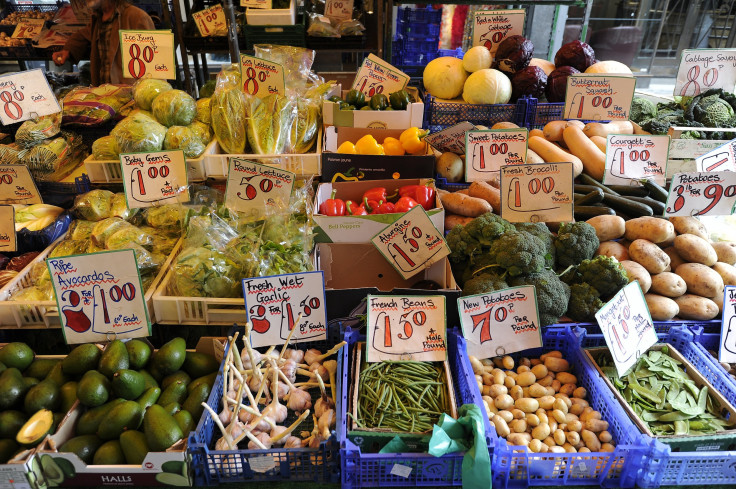6 Healthy Foods That Will Make You Feel Bloated And Gassy

Many of us will try to load up on fruits and vegetables while on a health kick. These colorful foods can do our body good, but they can wreak havoc on our digestive system. It's not a coincidence that we develop stomach bloating and smelly gas after eating these healthy foods in excess.
It's not uncommon to experience digestive discomfort when we go through a diet change. Specifically, fruits and vegetables contain a number of nutrients, including oligosaccharides, soluble fiber and natural sugars, like fructose, that can cause excessive gas in the intestines. It's the breakdown of foods during the digestive process that can lead to passing gas, burping, and gas pains or cramping.
The U.S. Dietary Guidelines recommend most adults consume two and a half to three cups of vegetables per day, along with two cups of fruit. Yet, close to 90 percent do not meet vegetable intake recommendations, and over 75 percent do not meet the fruit intake recommendations. However, adding more than the recommended amount to our diet isn't always healthier.
A 2014 study published in The BMJ found for every portion of fruit and vegetables consumed, there's a lower risk of premature death; the average risk of death fell about 5 percent for every extra serving, up to five servings per day— after five there's no further impact. In the U.S. and China, eating more fruits and vegetables was linked with a lower risk of dying from any cause, especially heart disease.
When it comes to fruit and vegetable intake, moderation is key.
Below are six foods that cause bloating and gas, from carrots to mangoes.
Artichokes
This gas culprit contains a natural sugar, known as oligosaccharide, which the human body cannot completely break down. These large molecules are not digested in the same way as other sugars because the human body does not make the enzyme that breaks them down. Instead, they make their way through the digestive tract to the large intestine intact and not digested, waiting to be broken down by bacteria in the intestine. It is this process that produces smelly gas.
Carrots
Carrots are one of the healthiest foods that provide us with essential vitamins and minerals. However, eating too many carrots can leave us with uncomfortable side effects, like veggie bloat. A cup of raw carrots contains about 12 grams of carbohydrates with 4 of these grams being fiber. High-fiber vegetables, like carrots, cause gas because bacteria within the colon produces it as a by-product of its digestion of fiber.
Cruciferous Vegetables
Vegetables like kale, cabbage, and broccoli are excellent sources of vitamin C and fiber, but they can also make us feel bloated and gassy. Cruciferous vegetables contain the complex sugar known as "raffinose," which makes it difficult to digest for people with a sensitive stomach, according to the Cleveland Clinic. These vegetables not only cause flatulence, they also produce an odiferous smell.
Apples
This popular fruit is filled with antioxidants, especially green apples. However, apples are loaded with fructose, or fruit sugar, which can be tough on a sensitive stomach. Fructose requires no digesting; they are already broken down into the simplest form the body can absorb. However, when fructose doesn't get absorbed into the bloodstream through the intestinal wall, it is sent down the bowels and consumed by bad bacteria that make by-products, like methane and hydrogen gas, causing bloating, cramping, gas, diarrhea, and bad breath.
Blackberries
The antioxidant-rich fruit is packed with polyols, the main component in sugar substitutes, also known as sugar alcohols. Polyols linger around the digestive system, and are only partly absorbed by the small intestine. The remaining polyols pull water into the small and large bowel and are then fermented by intestinal bacteria, leading to excessive gas.
Mangoes
This sweet fruit contains more fructose than glucose, which makes it difficult for fructose to be absorbed by the body. This imbalance can lead to bloating and flatulence. Moreover, fructose is sweeter than glucose, which can make it more difficult to digest for those with gut issues.
Remember, eating these healthy foods in excess will make your stomach hurt.
Copyright Medical Daily News Service. All rights reserved.





















